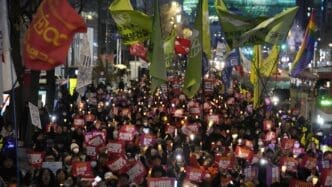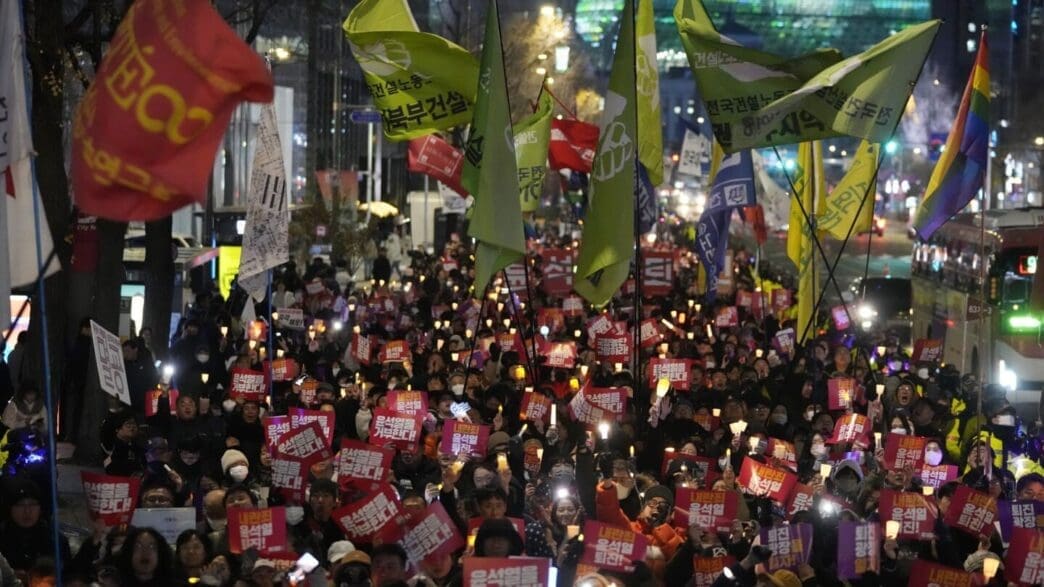The political atmosphere in Seoul is tense as South Korea’s ruling party leader called for the suspension of President Yoon Suk Yeol’s powers. This development increases the likelihood of his impeachment, a move already gaining momentum among opposition parties. President Yoon’s recent declaration of martial law, although brief, has been labeled by many as a ‘coup,’ compounding the political crisis.
Han Dong-hun, leader of the ruling People Power Party, emphasized the urgent need to remove Yoon’s presidential duties, citing the risk of ‘extreme actions’ including the potential reimposition of martial law. Intelligence reports allegedly reveal that Yoon ordered military detentions of key politicians during the martial law period, further heightening concerns.
Opposition parties are gearing up for a parliamentary vote on Yoon’s impeachment, which could take place as soon as Saturday. To succeed, they will need support from ruling party members. Han’s stance represents a dramatic reversal, as he recently vowed to oppose the impeachment motion despite criticizing Yoon’s actions as unconstitutional.
The legislative implications are significant. Yoon’s potential impeachment will hinge on securing a two-thirds majority in the National Assembly, requiring at least eight votes from the ruling party. Should the motion pass, Yoon would be suspended from his duties pending a Constitutional Court decision, with Prime Minister Han Duck-soo taking over in the interim.
This unfolding drama has also drawn international attention, with leaders cancelling visits to South Korea and criticism emerging from the Biden administration. The impact on South Korea’s foreign relations and domestic stability cannot be overstated, as Yoon’s actions have strained both arenas.
Yoon’s silence following these developments has raised further questions. After lifting the martial law declaration, he has not addressed the public, although his office confirmed the resignation of Defense Minister Kim Yong Hyun, who allegedly proposed martial law.
Prosecutor General Shim Woo Jung has announced an investigation into allegations of rebellion against Yoon, as this issue goes beyond the typical immunity a sitting president enjoys. The legal proceedings will be closely monitored, given the serious nature of the charges.
As the nation awaits the parliamentary decision, the political landscape remains volatile. The outcome could redefine South Korea’s governance structure and has already highlighted deep divisions within the ruling party.
The situation in South Korea continues to evolve rapidly as political leaders and citizens alike grapple with the ramifications of President Yoon’s martial law declaration. The move to suspend his powers could be a pivotal moment in the nation’s history, with potential long-term impacts on its political and social order. As events unfold, all eyes remain on the upcoming parliamentary vote and the subsequent decisions that will shape the country’s future.
Source: Apnews








